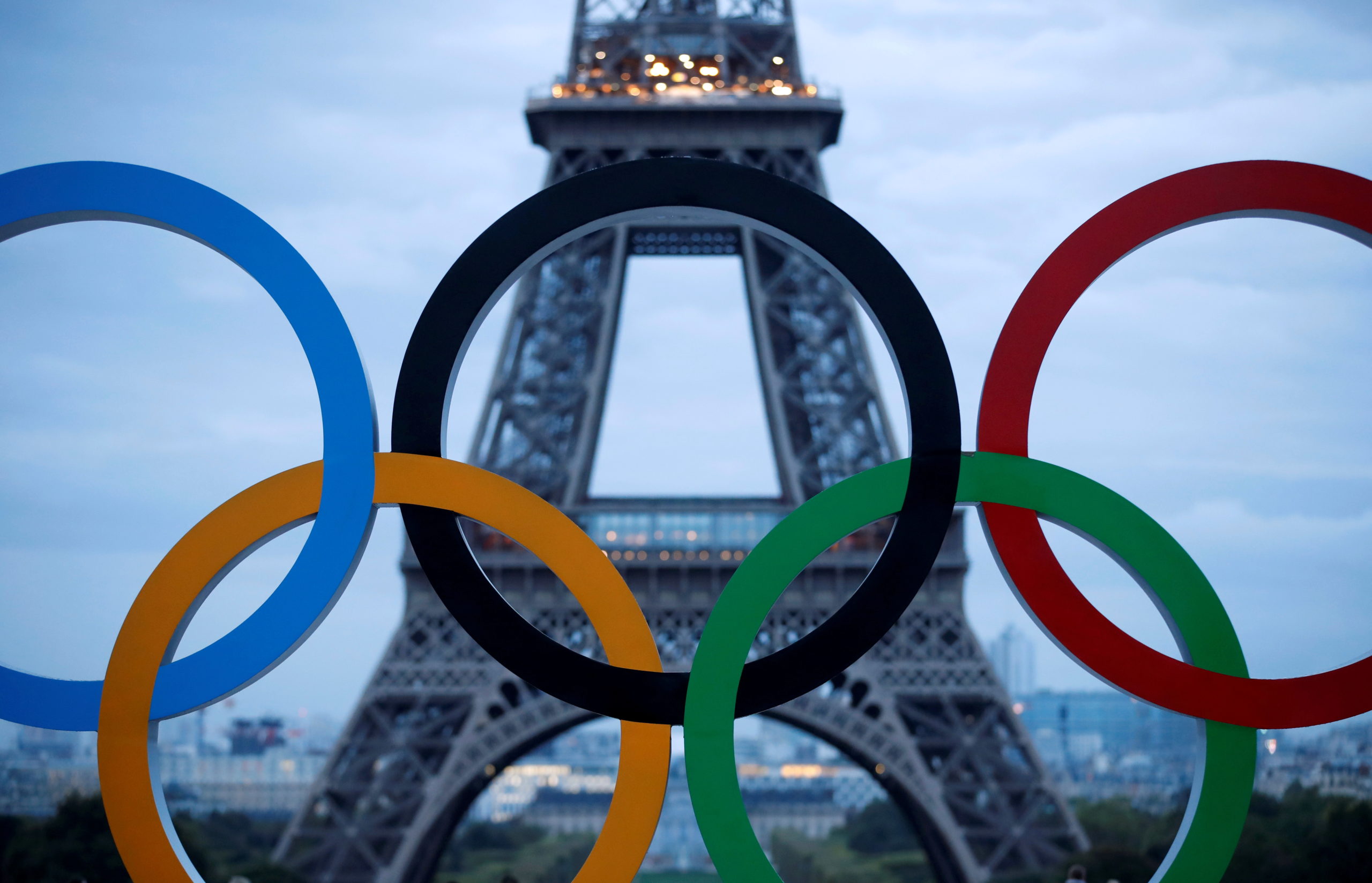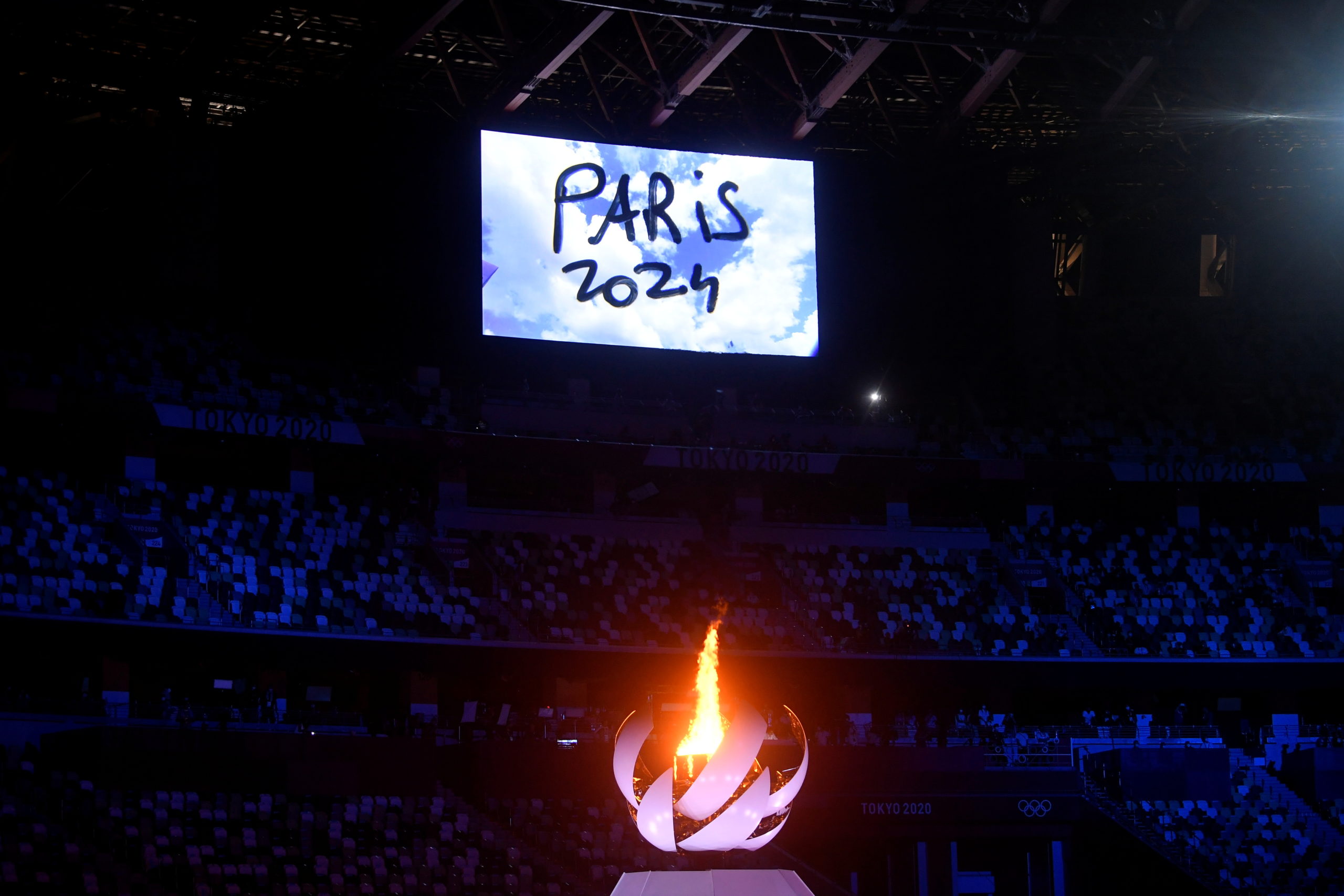Paris Olympics face tough hurdles with two years to go

FILE PHOTO: Olympic rings to celebrate the IOC official announcement that Paris won the 2024 Olympic bid are seen in front of the Eiffel Tower at the Trocadero square in Paris, France, September 14, 2017. REUTERS/Christian Hartmann/File Photo
As he left the Tokyo Olympics last August, Tony Estanguet, head of the Paris 2024 organizing committee, told AFP he was “prepared to run a marathon at 100-meter speed.”
The stopwatch is ticking, and with two years to go before the Games open on July 26, 2024, it has become a 100m with hurdles.
Security is one big headache, but here AFP Sport looks at three other serious issues facing the Paris Olympic Organising Committee (COJO) and the French government.
Budget: higher & higher
Controlling the budget, as so often with the Olympics, was proving a battle even before Covid-19 and the recent surge in inflation.
In September 2020, organizers, blaming the pandemic, announced 400 million euros in cuts from a budget then estimated at 3.8 million euros.
Now the problem with expenditure is inflation.
On the income side, ticket sales do not start until December and COJO has not yet filled all its last major sponsorship slots, although organisers hope French luxury goods titan LVMH will sign up.
“They are very tense in terms of the budget,” a source close to the matter told AFP.
Last summer, the company set up to oversee the construction of Olympic venues and other permanent infrastructure, including bridges and motorways – the Societe de Livraison des Ouvrages Olympiques (Solideo) – upped its budget estimate to 4 billion euros ($4.01bn).
Of that, 1.55 billion euros come from the public purse.
After worrying about supply chain issues earlier this year, inflation is now the issue for Solideo.
Its position is that someone is going to have to foot the extra costs.
In all probability that will be the French state which has provided the financial guarantees. But in tough times, overspending risks squandering public support for the Games.
Transport: slower & slower

The Olympic torch seen lit for the last time as Paris takes over the next hosting. —PHOTOS BY REUTERS
One reason for staging the Olympics is to attract visitors.
For Paris, already one of the most popular tourist cities in the world, managing the hoped-for 10 million spectators, domestic and foreign, could prove a strain.
Two metro lines planned to link Olympic sites to the center of Paris will not be finished in time, but organizers and the state say they have taken that into account.
Attention focussed on public transport after strikes and bottlenecks contributed to the chaos which marred this year’s Champions League final at the Stade de France, which will host the Olympics athletics.
A report on transport, which will include lessons from that deeply embarrassing experience, is to be submitted to the French prime minister in the autumn.
France is also struggling with a shortage of bus drivers which could cause problems when COJO charters the fleet of coaches and buses that every Games needs.
The Paralympic Games are drawing attention to the poor access on much French transport and many buildings although organizers say a lot of progress is being made.
Doping: later & later
Several sources in the anti-doping world told AFP that the COJO was “very late” in starting to set up its anti-doping organization, so much so that “the IOC is worried.”
While the International Testing Agency (ITA) will take charge during the Games, it is up to the COJO to plan the logistics so that it can intervene and work properly.
RELATED STORIES
Paris 2024 to be ‘light at the end of the tunnel’ says next Games chief
Paris 2024 organizers expect 600,000 at Olympics opening ceremony
Follow Inquirer Sports’ special coverage of the Paris Olympics 2024.